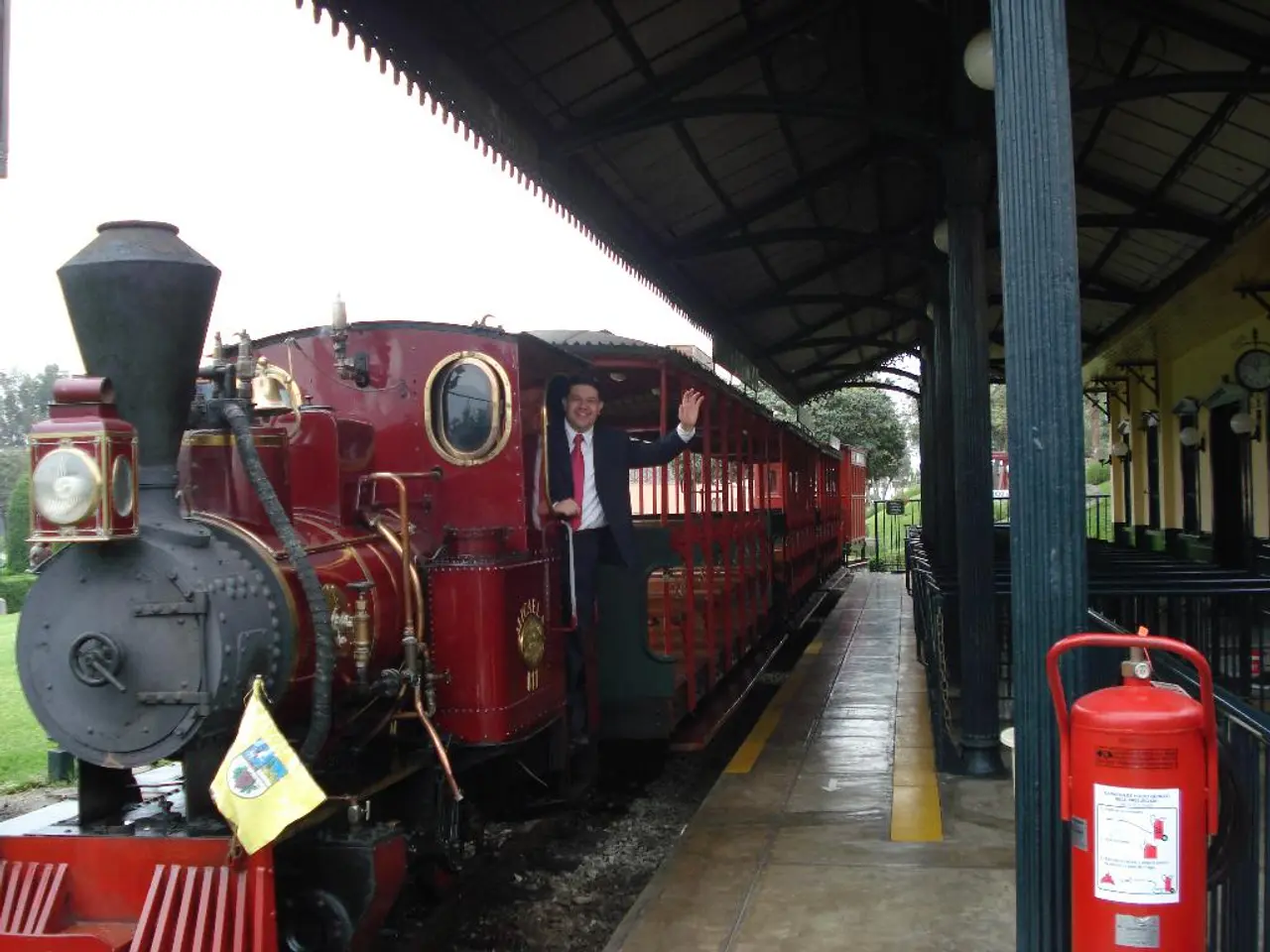Delays in train services caused by disruptions and railway embankment blazes
In a series of unexpected events, long-distance passenger traffic in Northern and Western Germany has faced disruptions this week. The primary cause of these disruptions is a major rail upgrade on the Berlin–Hamburg high-speed line, leading to a complete closure of this line from August 1, 2025, to April 30, 2026 [3].
Deutsche Bahn (DB) will carry out extensive renovation work during this nine-month closure, causing significant interruptions to rail services connecting these regions. Although there are issues related to air traffic in Germany, such as rising ticket prices, high taxes, limited services, and price transparency problems, these factors mainly affect air travel costs and service levels rather than causing direct disruptions to long-distance passenger traffic networks [1].
Meanwhile, incidents unrelated to the rail upgrade have also caused disruptions. Fires in the Hamburg, Lower Saxony, and Saxony-Anhalt regions, as well as a World War II unexploded bomb discovered in Osnabrück, have further complicated the situation.
The bomb discovery led to the evacuation of around 20,000 people in Osnabrück, and the bomb was defused around 9 PM. The bomb disposal incident caused delays on routes between Berlin, Hannover, and the Ruhr area, as well as between Hamburg and Berlin. ICE, EC, and IC trains between Hamburg - Bremen and Münster were diverted due to the bomb disposal from around 4:30 PM [2].
The railway companies announced that the disruptions in rail operations in the north of Germany have been resolved in the evening. However, the weather situation in the west of the country is causing disruptions to infrastructure and individual vehicles. Travelers in the west of the country can expect train cancellations and delays on Wednesday due to high temperatures.
Additionally, disruptions are occurring on numerous lines in the west of the country, as reported by the railway companies Eurobahn and National Express. The route between Wolfsburg and Stendal was reopened in the evening, but slope fires continue to pose a challenge.
Climate activist Luisa Neubauer was among those affected by the disruptions. She intended to visit her grandmother and participate in a discussion round with CDU federal parliamentarian Philipp Amthor in Hamburg. However, her travel plans from Berlin to Hamburg were disrupted by the rail upgrades and the subsequent closure of the Berlin–Hamburg high-speed line [2]. Despite the summer heat, Luisa found herself stranded in front of an ICE train, unable to reach Hamburg.
In a previous incident, 11,000 people had to leave their apartments in the evening and were only allowed to return late at night due to a bomb disposal in Osnabrück [2]. The authorities are urging the public to remain vigilant and follow safety instructions during such incidents.
Despite these challenges, the railway companies are making efforts to start all ICE lines on time for the start of operations on Wednesday [3]. Passengers are advised to check their travel plans and be prepared for potential delays or changes.
- The railway disruptions in northern and western Germany have also extended to the Ruhr area due to delays on routes caused by a bomb disposal incident in Osnabrück.
- Environmental science experts have voiced concerns about the impact of climate-change on transportation infrastructure, noting the recent disruptions caused by high temperatures in the west of the country.
- While the rail upgrade on the Berlin–Hamburg high-speed line is causing significant interruptions, other industries like science and finance are exploring potential solutions to reduce carbon emissions and mitigate disruptions caused by extreme weather.
- As the rail upgrade, weather disruptions, and various incidents continue to affect transportation in Germany, it underscores the need for investment in infrastructure resilience and a focus on sustainable practices in industries such as transportation, science, and finance.




